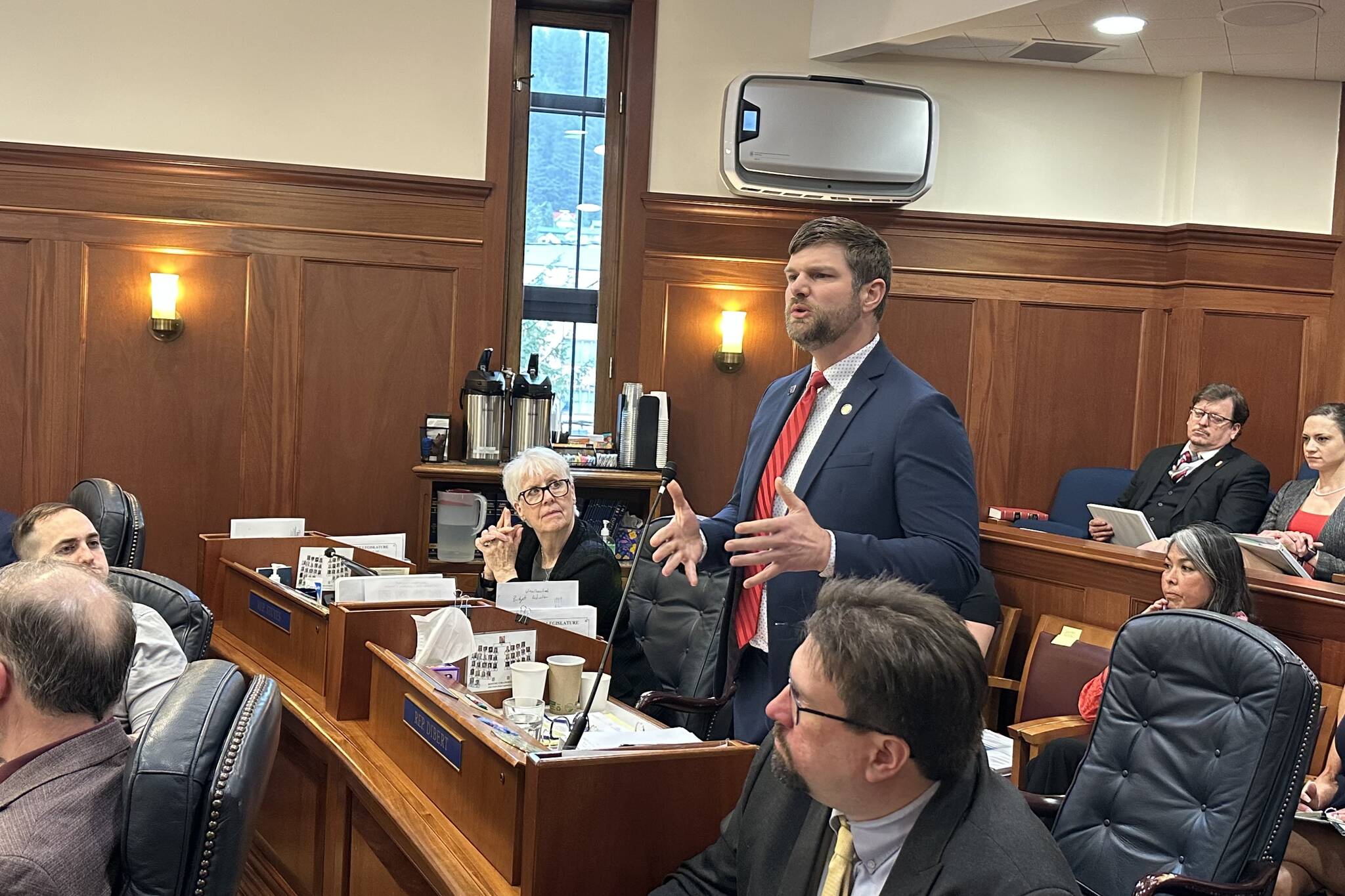On Wednesday, April 30, the Alaska Senate passed House Bill 57 by a vote of 17-3. The House quickly concurred with the Senate’s changes by a vote of 31-8 and sent HB 57 to the governor’s desk. This bill provides a small increase to per-pupil K-12 education funding as well as multiple school policy reforms that will lead to better outcomes.
These reforms include reducing barriers to begin and renew charter schools, target class sizes, school cellphone policy, looking at trends for what happens to Alaska’s high school graduates, and a task force on education funding. If HB 57 becomes law, the base student allocation formula spending will increase by 0.29% and pupil transportation funding will increase 10%, for a total increase for those two items of $11.9 million as compared to last year. However, after declining enrollment across the state is calculated into the cost of K-12 education, the State of Alaska is projected to spend 2% less on K-12 education for next school year (FY26) than it did this school year (FY 25).
HB 57 also includes two provisions that will improve learning opportunities and outcomes. The first provides per-pupil reading grants awarded for elementary students that show growth or proficiency in reading. The second is an increase of $10 million in funding for career and technical education.
Because of our current budget constraints, funding for these two items is contingent on the passage of Senate Bill 113, which would change the corporate income tax structure so that companies selling goods and services online in Alaska pay a proportionate corporate income tax in Alaska instead of another state. This is not a new tax. It simply changes the jurisdiction of where an online sale happens from outside to inside of Alaska. Currently, other states are taking Alaska’s corporate income tax dollars. This must stop.
The bills I have introduced continue to make progress this legislative session. Two of my bills passed from the Senate Finance Committee this week and are now headed to the Senate floor for consideration.
Senate Bill 133 demands insurance companies provide swift approvals for medical treatments and prior authorizations for chronic conditions so Alaskans don’t have to wait for necessary medical care.
Senate Bill 137 would extend the sunset date of four State of Alaska boards: Direct-Entry Midwifery, Nursing, Veterinary Examiners, and Parole. Legislative audits found all three boards continue to provide a public benefit and recommended their extension.
Senate Bill 29, which would create an executive administrator for the Big Game Commercial Services Board, passed the Senate unanimously last week and heads to the House Resources Committee. The complexity of Alaska’s hunting guide regulations requires a position solely focused on this work to ensure timely licensing reviews and thorough, accurate investigations. The new position would be paid for with licensing fees, so it does not impact the State’s bottom line.
I am honored to be your state senator. I want to hear from you. You’re welcome to call my office at 907-283-7996 or email me at Sen.Jesse.Bjorkman@akleg.gov. I hope you’ll take the time to share your questions and ideas.

